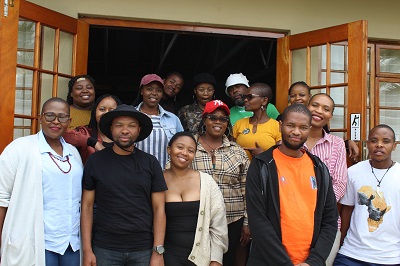By: Koena Mokobocho and Thandiwe Kubere
Everyone has a right to liberty and to freely express or identify as they prefer. However, this ideal only applies to a specific group of people- men and women with structural power. These are authoritative figures that create the laws which directly affect the lives of people. Inherently, the creation of a system of rules that regulate the actions of society is not bad but can be if the laws implemented and enforced discriminate against a certain group within society, limiting their freedom.
Take, for instance, adoption rights in Lesotho. Legally, only a heterosexual couple or a single woman above the age of 25 is allowed to adopt a child, the law makes no mention of men’s rights regarding adoption. They are completely ignored without taking into consideration their take on the matter. “What if I am a man and I want to adopt I child, I am all capable of raising?”
The People’s Matrix Association held a workshop with the media-particularly reporters to educate them on sex, sexual orientation, gender identity, and gender expression. Furthermore, the organization went into detail about how the law and society discriminate against the LGBTQIA+ community in Lesotho. Another purpose was to deliberate on how to effectively report about issues concerning the community without sensationalizing news and focus on reporting facts.
There were discussions on the challenges the queer community faces. Though one would assume getting access to health care is the same for everyone, it is different for our trans-men and trans-women who have to pay significantly more for medical services than their heterosexual counterparts. Services like hormone therapy cost more money for trans people in Lesotho. This makes it increasingly difficult for queer people to receive gender-affirming surgeries – that can cost thousands of Maloti for a single procedure.
The harsh reality is the ignorance of the government towards marginalized and minority communities in Lesotho. Their pleas for a more understanding and equal society are often ignored which leaves them bogged down in the trenches left to defend themselves against all kinds of harm. It is paramount for the media and its reporters to continue to support and tell the stories of communities that are in desperate need of visibility.
Human rights are for all humans. We all deserve to live in a society where we are respected and acknowledged, regardless of how we choose to identify or express ourselves within our respective communities. Article 1 of the Universal Declaration of Human Rights (UDHR) states that all human beings are born free and equal in dignity and rights. They are endowed with reason and conscience and should act towards one another in a spirit of brotherhood.
Article 2 extract of UDHR proclaims, “Everyone is entitled to all the rights and freedoms outlined in this Declaration, without distinction of any kind, such as race, color, sex, language, religion, political or other opinion, national or social origin, property, birth or other status.”


